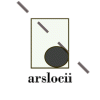 We have said that placeness can be in the eye of the beholder. One such beholder, a certain Edward Abbey, wrote a book in 1968 called Desert Solitaire. His observations about time spent alone in the desert, specifically Arches National Monument (now Park), are keen and true – and often express our concept of arslocii. Up front, in the introduction, he worries that the book might be perceived as being based on appearances and surfaces rather than “to engage and reveal the patterns of unifying relationships … the true underlying reality of existence.”
We have said that placeness can be in the eye of the beholder. One such beholder, a certain Edward Abbey, wrote a book in 1968 called Desert Solitaire. His observations about time spent alone in the desert, specifically Arches National Monument (now Park), are keen and true – and often express our concept of arslocii. Up front, in the introduction, he worries that the book might be perceived as being based on appearances and surfaces rather than “to engage and reveal the patterns of unifying relationships … the true underlying reality of existence.”
First of all, an amazing time the late ’60s was – when people actually thought about such things as reality. Apparently, a lost notion. And, then, to be concerned that critics might think that he wasn’t providing dialogue about it, let alone answers. Wow. But, he as writer is a great combination of scientific observer and poetic interpreter. The 33,000 acres of Moab valley, canyon and tableland, with the deep gash of the Colorado River, which he tends as a park ranger, are described in achingly beautiful detail, sometimes to the point of madness. And he is protective and angry about its impending loss for human use. But he states, simply, that he is there “to confront … the bare bones of existence, the elemental and fundamental, the bedrock which sustains us … in which the naked self merges with a nonhuman world and yet somehow survives still intact, individual, separate. Paradox and bedrock.”
Abbey illustrates so well in this book that the combination of human observation – not intervention – and wilderness together make a perfect pairing. Voyeur and performer, interpreter and constant changer, lover and indifferent object of that love. Arslocii. One of his stated goals is to lose the filters, the human translation of the place – although he certainly describes and reacts to what’s around him – but he simply wants to “be,” just like nature itself. He can’t help his human emotions and his metaphors and similes, and because of that he makes it real for us. He creates that placeness for us in his words. We can’t see it through his eyes but we can hear it in his voice. Nature’s indifference feeds the flames of his human passion.
Aside from rants about nearly every facet of human endeavor (and I cannot disagree), Abbey is a prophet in his wild world. And he is the perfect counterpart to the wilderness. His writing is eloquent, his mind is facile, his sources of knowledge are varied and vast. He has depth and humor and seems to be without fear. As powerful as his detailed sightings of landscape, flora and fauna are, as deep as his respect and love of nature are, he is a man who treasures the gifts of individual humans in the context of civilization
precious and fragile, drawn through history by the finest threads of art and idea. … It is the conscious forefront of evolution, the brotherhood of great souls and the comradeship of intellect, a corpus mysticum … a democratic aristocracy based not on power or institutions but on isolated men – Lao-Tse, Chuang-Tse, Gautama, Diogenes, Euripides, Socrates, Jesus, Wat Tyler and Jack Cade, Paine and Jefferson, Blake and Burns and Beethoven, John Brown and Henry Thoreau, Whitman, Tolstoy, Emerson, Mark Twain, Rabelais and Villon, Spinoza, Voltaire, Spartacus, Nietzsche and Thomas Mann, Lucretius and Pope John XXIII, and ten thousand other poets, revolutionaries and independent spirits, both famous and forgotten, alive and dead, whose heroism gives to human life on earth its adventure, glory and significance.
He goes on: “The utopian technologists foresee a future for us in which distance is annihilated. … To be everywhere at once is to be nowhere forever, if you ask me.” His thoughts and the rich tapestry of his surroundings, a harsh environment to be sure, are the ideal and the real, brought together in this remarkable diary. Placeness.
Desert Solitaire is as full of extremes and paradoxes as nature is, written by a human who is at once a misanthrope and a mystic. In the forty-four years since its writing, Abbey has proven himself to be right as well as righteous.


